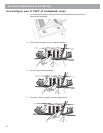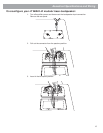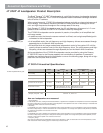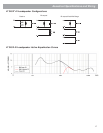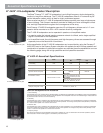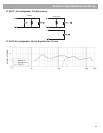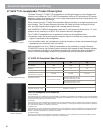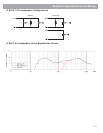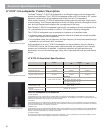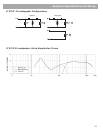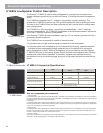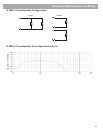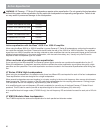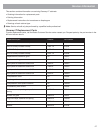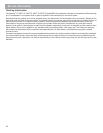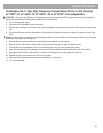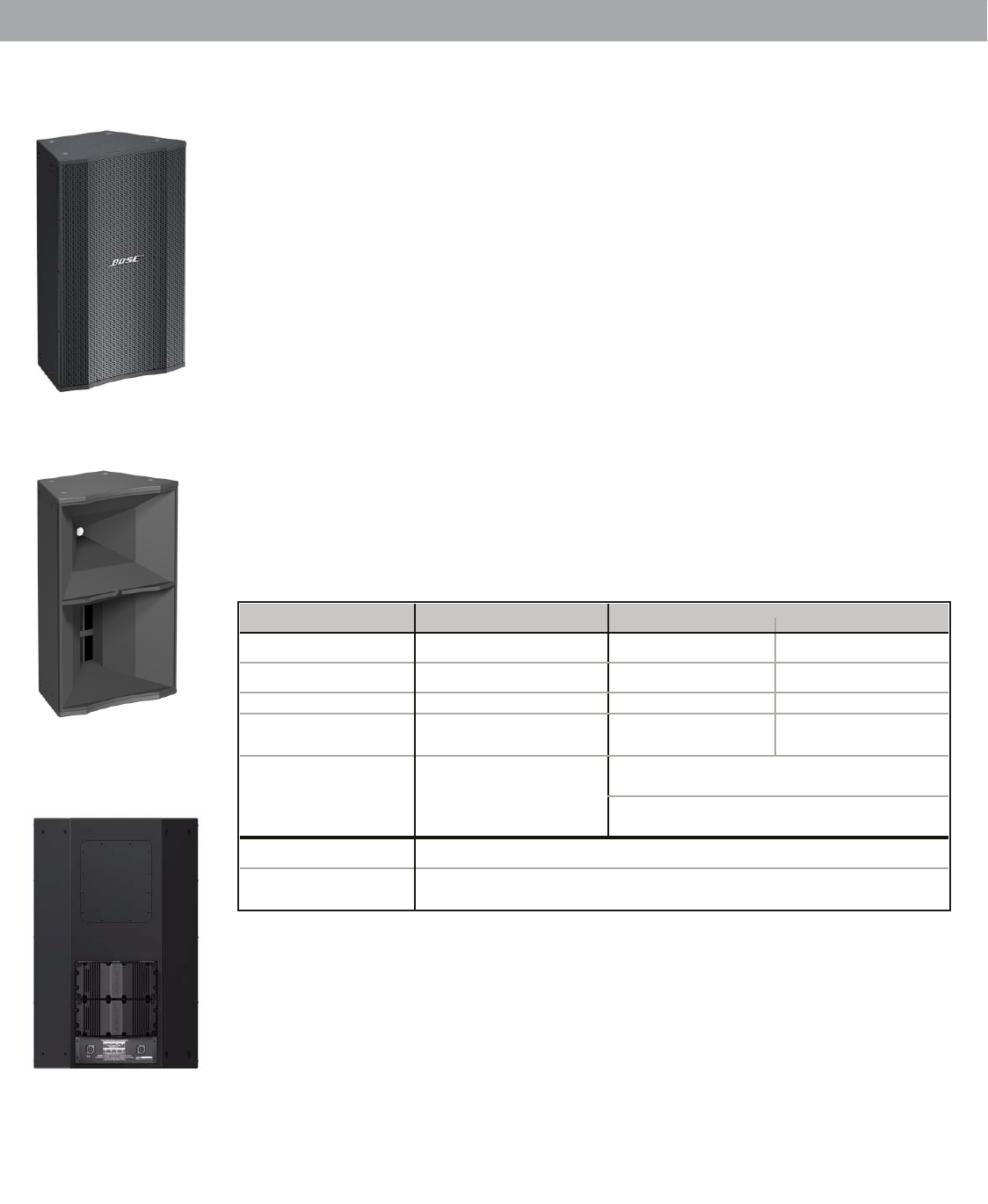
22
Acoustical Specifications and Wiring
LT 9702
®
-III Loudspeaker Product Description
The Bose
®
Panaray
®
LT 9702
®
-III loudspeaker is a mid/high-frequency device designed for
shorter throw distances. The LT 9702-III loudspeaker offers an 92º horizontal by 61º vertical
dispersion pattern which is the broadest beamwidth of all the LT loudspeakers.
When arrayed correctly, LT 9702-III loudspeakers behave sonically as a large single source
of sound energy. This Coherent Wavefront provides full fidelity and even coverage at critical
mid- and high-frequencies throughout the coverage area of the array.
Each Panaray LT 9702-III loudspeaker uses two V2 mid-frequency drivers combined with a
1.4" compression driver mounted on a 90˚H x 70˚V constant directivity waveguide.
The LT 9702-III loudspeaker can be operated in a passive or bi-amplified mode.
• In passive mode, the internal passive crossover network is utilized and a single amplified
signal is connected to the loudspeaker.
• In bi-amplified mode, the mid-frequency and high-frequency drivers are accessed through
separate pins on the Neutrik NL4 connectors.
Active equalization for the LT 9702 III loudspeaker can be provided by using the Panaray
LT 9702-III EQ card or the Panaray system digital controller with presets for each Panaray
speaker and combination of speakers. A parametric equalizer can replicate the active
equalization curve on the following page, along with a high-pass filter and low pass filter as
shown.
LT 9702-III Acoustical Specifications
How our loudspeakers are measured
1. Power Handling
Full bandwidth pink noise, meeting the IEC Standard #268-5, is applied to the loudspeaker and amplified to a level at the loud-
speaker terminals corresponding to the power handling of the loudspeaker. The loudspeaker must show no visible damage or mea-
surable loss of performance after 100 hours of continuous testing.
2. Sensitivity
Full bandwidth pink noise is applied to the loudspeaker with its active equalization curve and amplified to a level at the loudspeaker
terminals corresponding to 1 watt as referenced to the nominal impedance. The average sound pressure level (dB-SPL) is measured
at 1 meter from the speaker in an anechoic environment.
3. Maximum SPL
Full bandwidth pink noise is applied to the loudspeaker with its active equalization curve and amplified to a level at the loudspeaker
terminals corresponding to the long-term rated power handling of the speaker. The average sound pressure level (dB-SPL) is mea-
sured at 1 meter from the speaker in an anechoic environment.
4. Frequency Range
Sine waves are injected into the loudspeaker and the level is adjusted to 1 watt, as referenced to the nominal impedance, and the
level measured at 1meter. Resulting graph is smoothed by 0.05 octave-band.
LT 9702-III speaker rear
LT 9702-III speaker without grille
LT 9702-III speaker with grille
Power Handling
1
Impedance
Sensitivity
2
(at 1W @ 1m)
Maximum SPL
3
(pink noise @1m @ rated power)
Frequency Range
4
(± 3 dB)
Beamwidth
(-6dB point, average 800 - 5 kHz)
Passive Bi-Amped
HPF: 1600 Hz, Butterworth, 4th order
Mid High
75W
8 Ω 8 Ω 8 Ω
140W 140W
104 dB SPL 105 dB SPL 104 dB SPL
126 dB SPL 127 dB SPL 123 dB SPL
Recommended Crossover
Internal Crossover @ 1.6 kHz
Mid Frequency
HPF: 160 Hz
,
Butterworth
,
4th order
LPF: 1600 Hz
,
Butterworth
,
4th order
Hi
g
h Fre
q
uenc
y
LPF: 20 kHz
,
Butterworth
,
4th order
180 Hz - 16 kHz
Horizontal: 92°, Vertical: 61°



